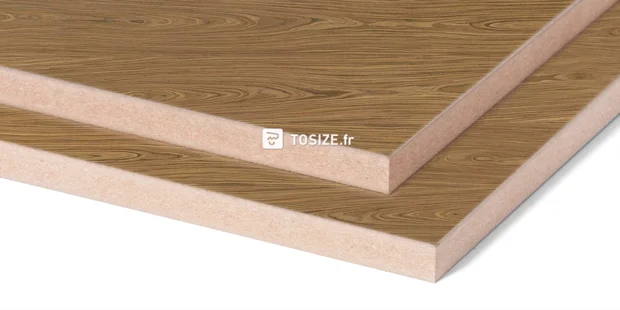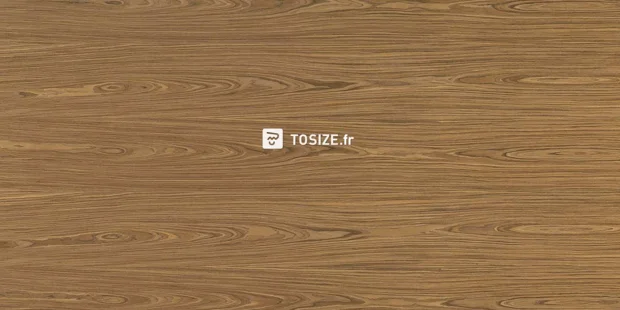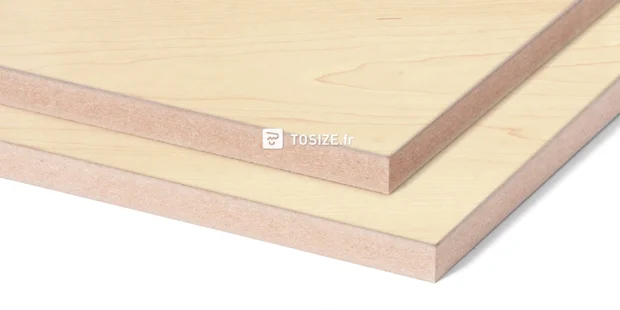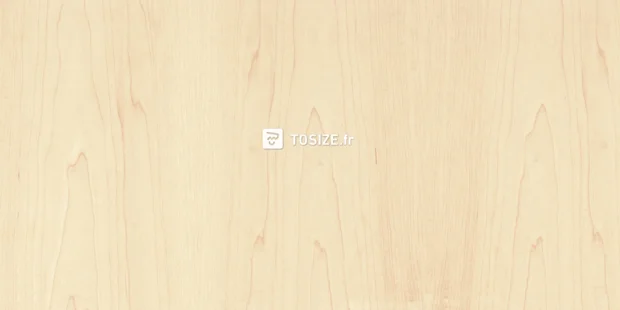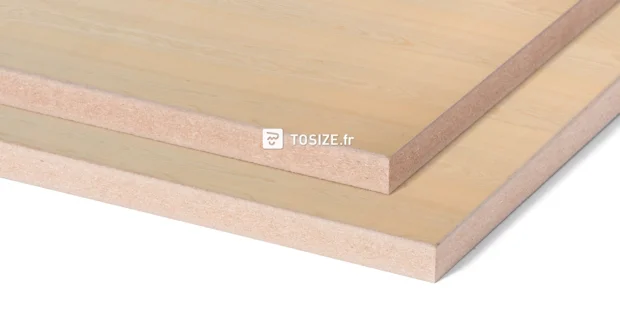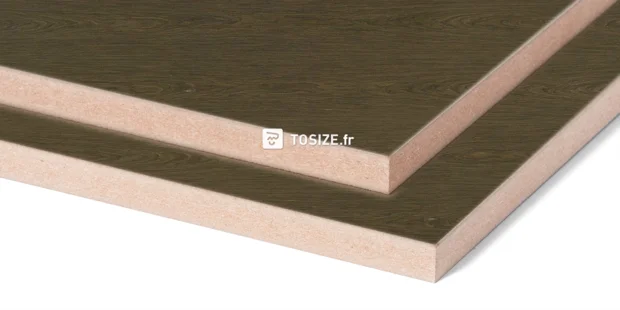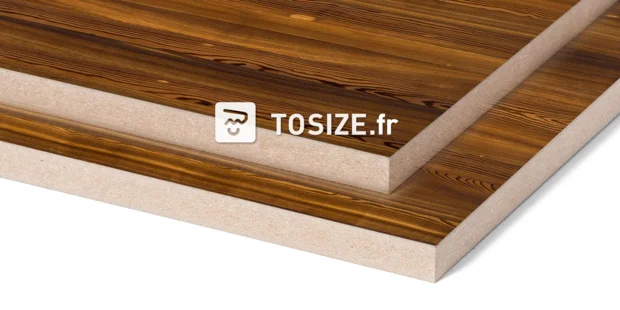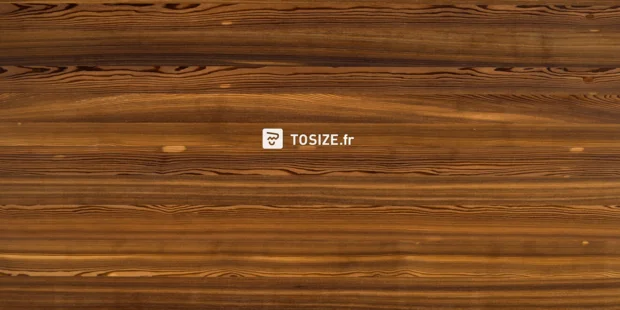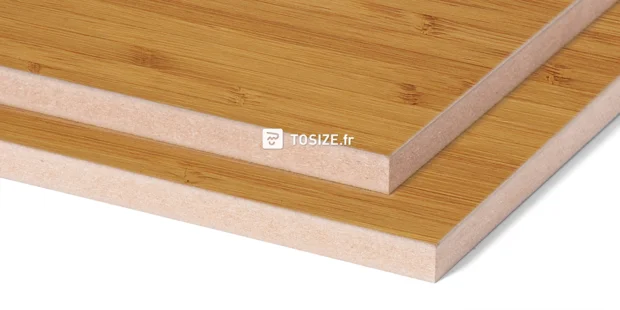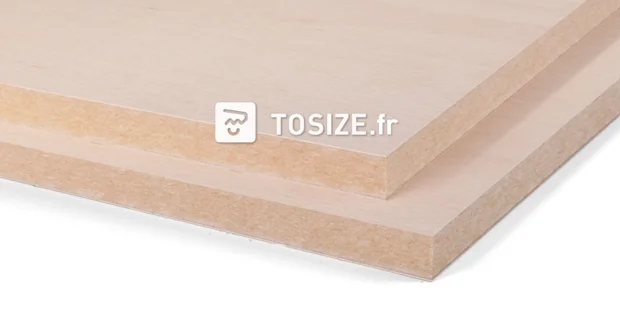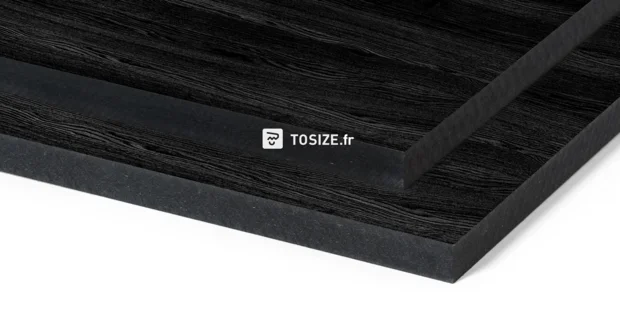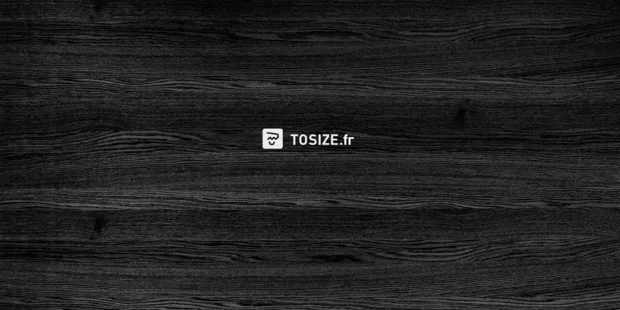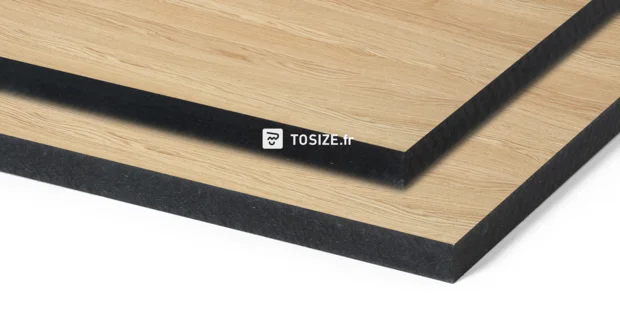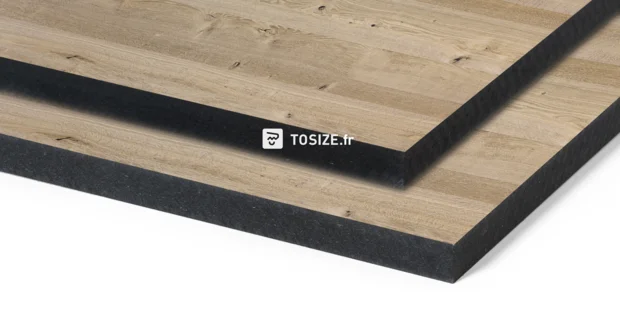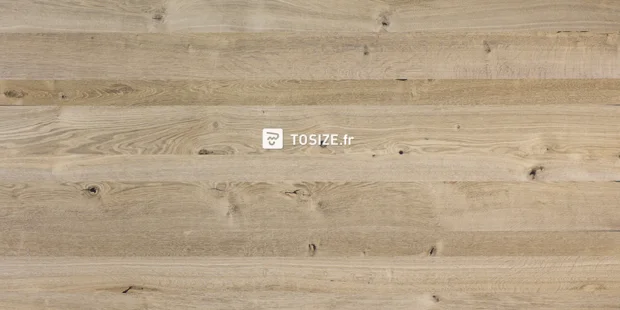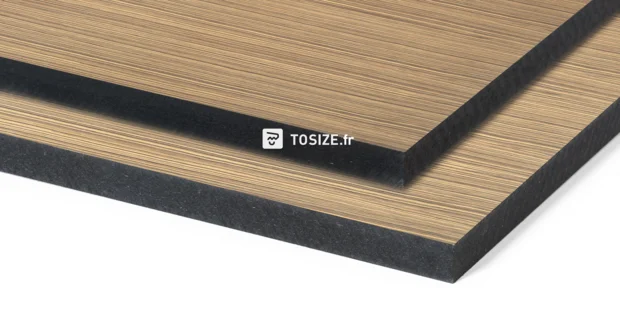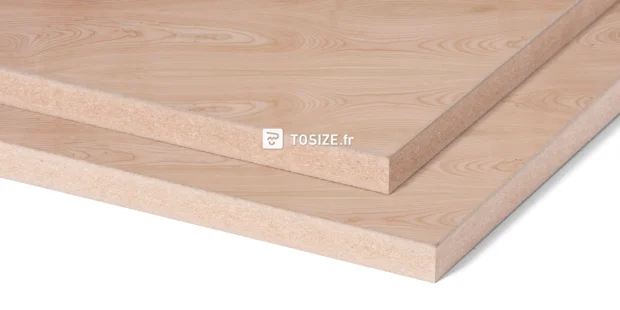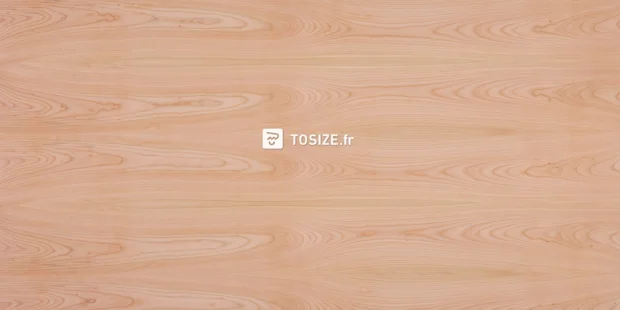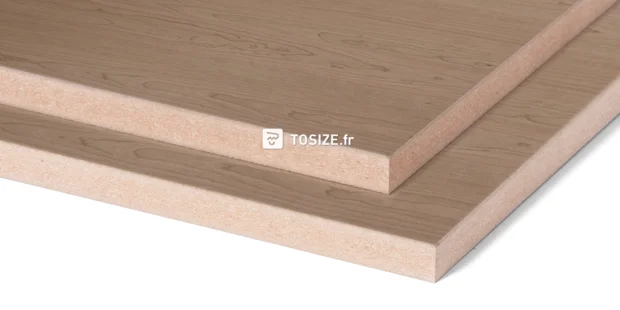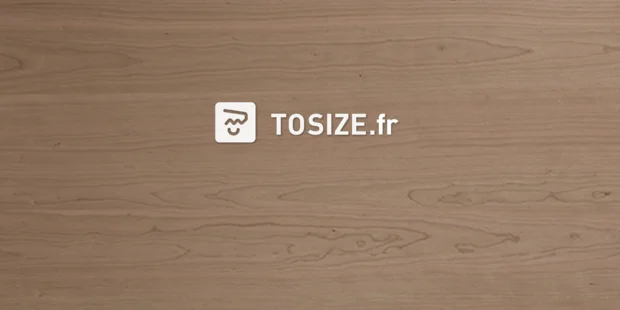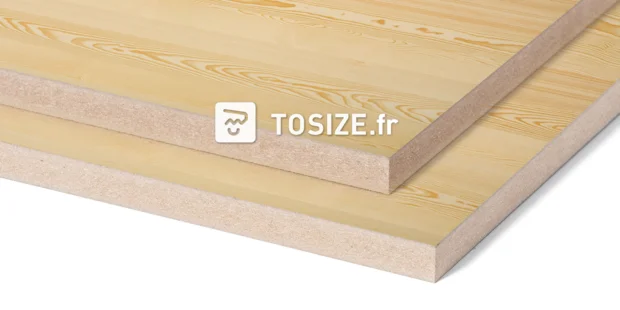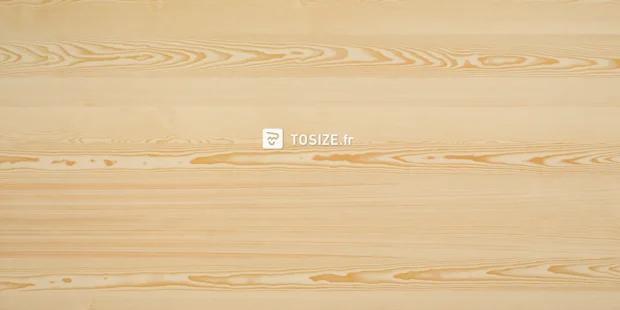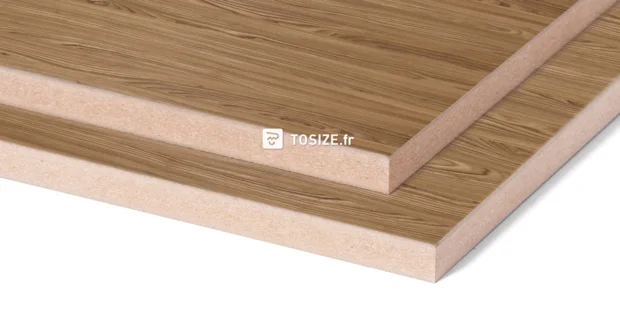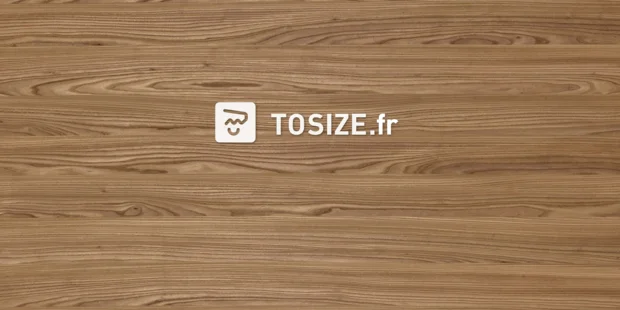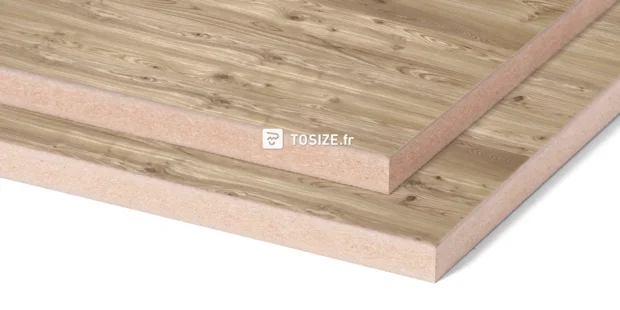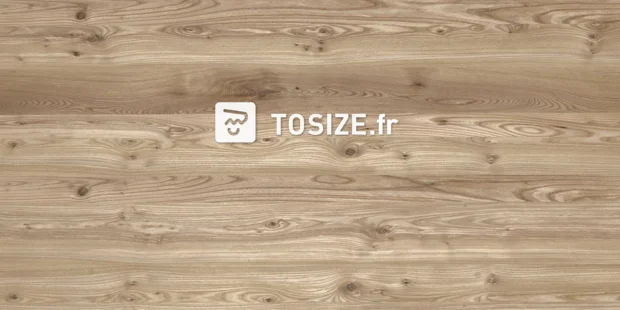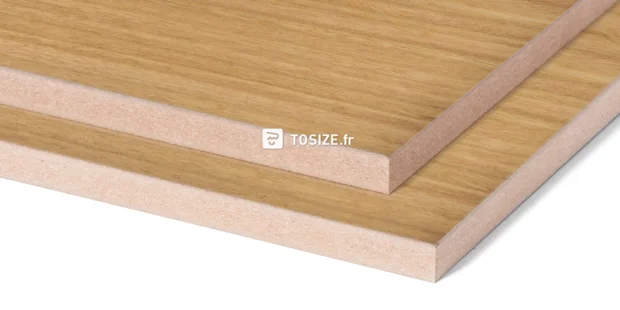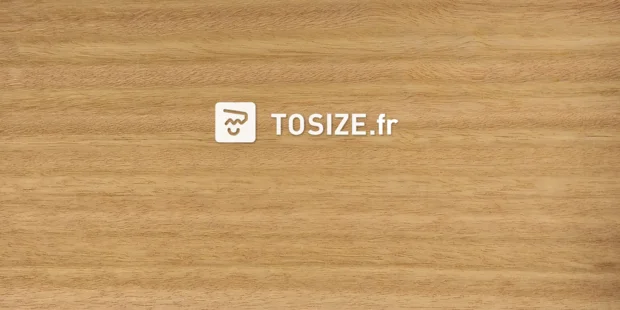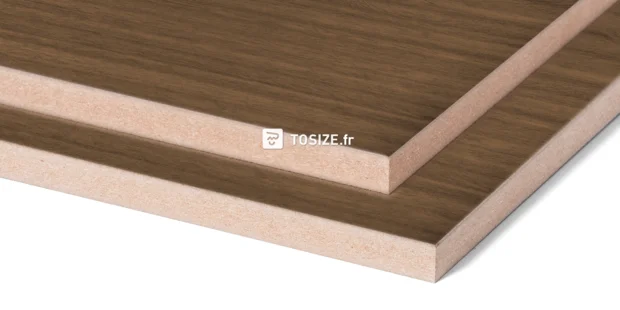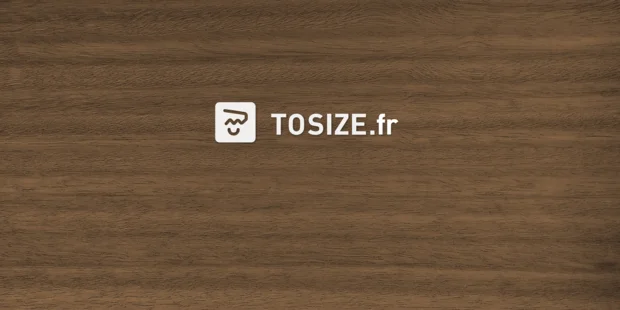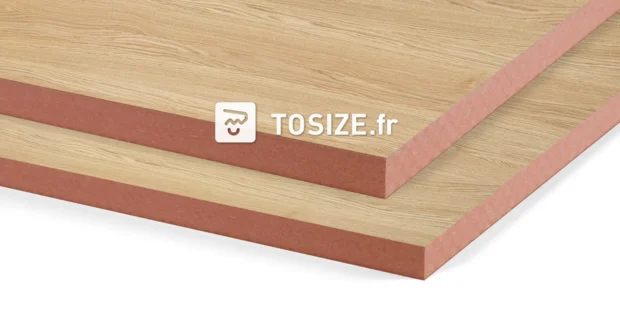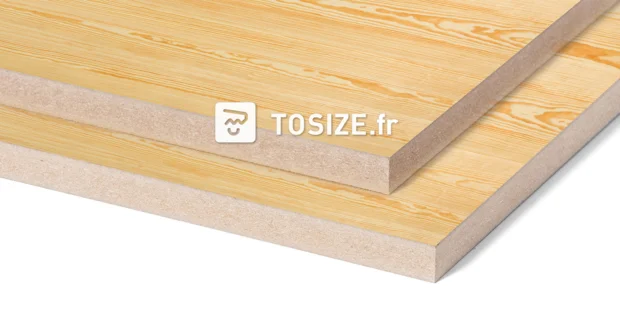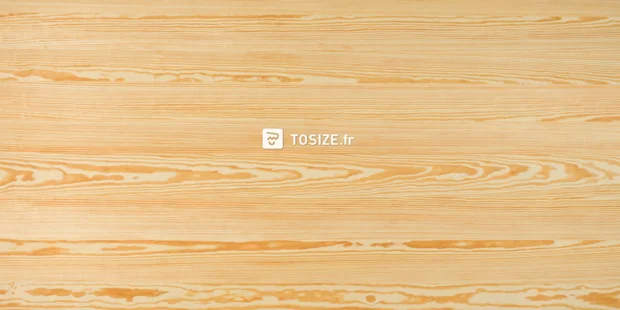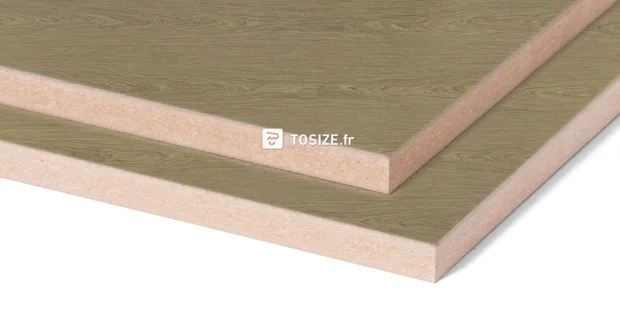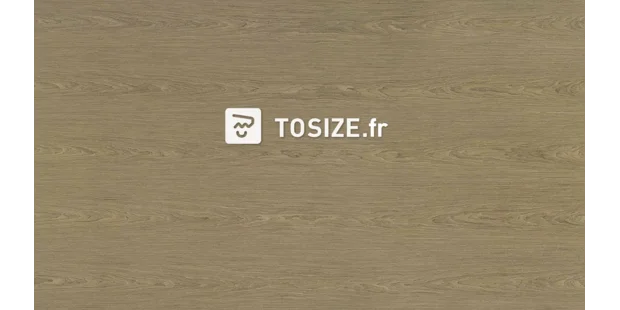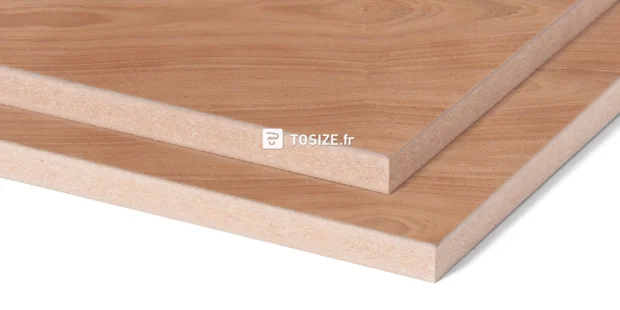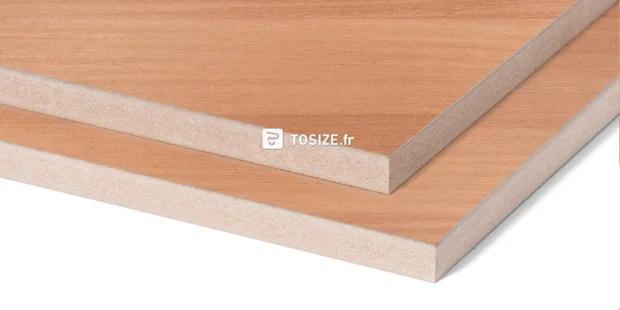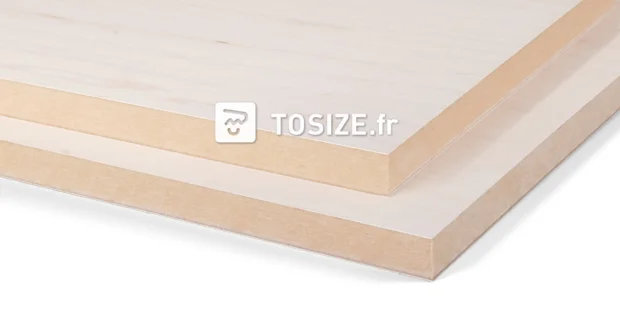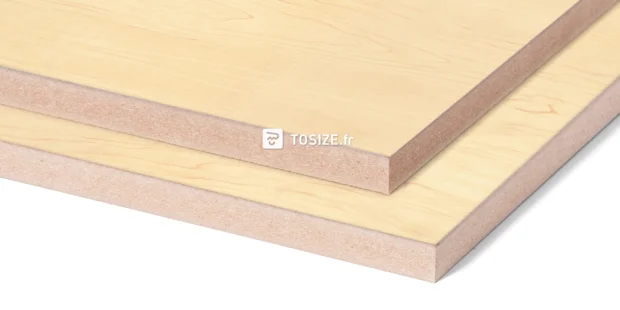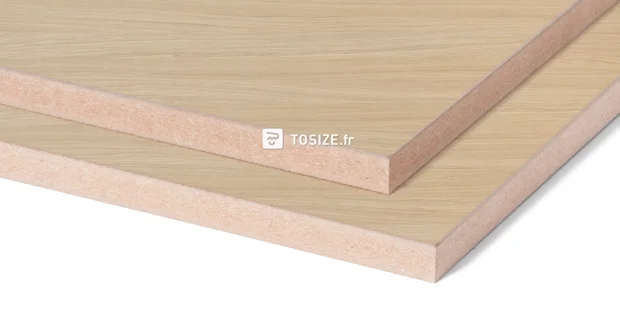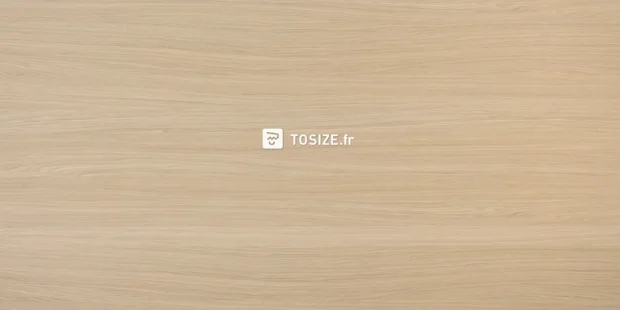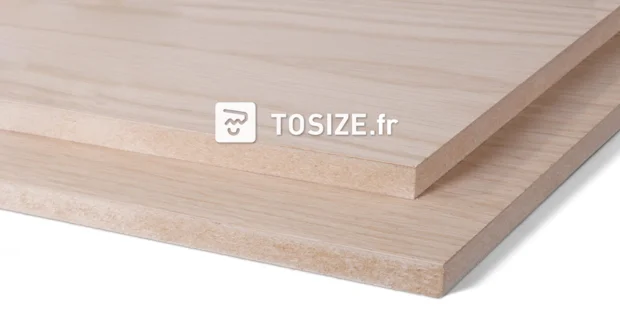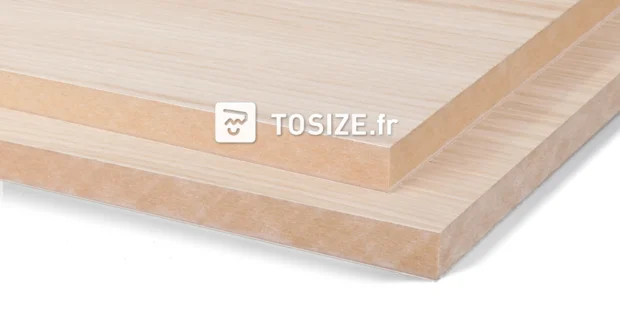- TOSIZE.fr
- Wood and sheet material
- Veneer
- Veneered MDF
MDF Biobased Oak mix veneer
Product information
- Fibreboard with a natural, wooden look
- Popular oak look
- Indistinguishable from solid wood when neatly finished with veneer banding
- Easy to process
- For indoor use only
Description
MDF Oak mix veneer is a standard MDF board with a natural appearance, thanks to its top layer of wood veneer. This layer is made up of a combination of crown / plain and kwartiers sawn oak, with the wood structure creating a natural-looking panel with a warm appearance. The top layers and end edges have yet to be treated.
Configure MDF Biobased Oak mix veneer
How convenient is that
Product information
- Fibreboard with a natural, wooden look
- Popular oak look
- Indistinguishable from solid wood when neatly finished with veneer banding
- Easy to process
- For indoor use only
Description
MDF Oak mix veneer is a standard MDF board with a natural appearance, thanks to its top layer of wood veneer. This layer is made up of a combination of crown / plain and kwartiers sawn oak, with the wood structure creating a natural-looking panel with a warm appearance. The top layers and end edges have yet to be treated.
Product properties
Applications
- Furnishings
- Interior
- Cupboards
- Panelling
- Casing
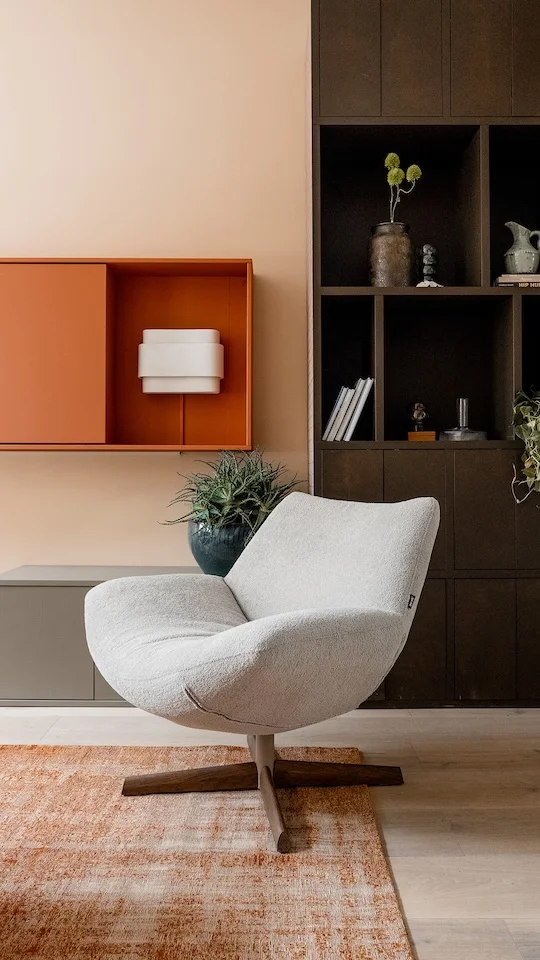
MDF Biobased Oak mix veneer custom-made boards order online
Order cut-to-size MDF Biobased Oak mix veneer easily online. You can have veneered MDF cut to size up to the millimetre. We deliver the panel fully customised to your home. Are you curious about the possibilities? Configure your product, and you will have your project ready in no time.
MDF Biobased Oak mix veneer : what is it?
MDF is a popular board material that can be used for countless projects. MDF veneered is the a standard MDF board with a top layer of oak. The top layer is meant to be kept in sight; the bottom layer is made of technical veneer and is meant to reinforce the board. Because the core of these panels is MDF, this board is also good and easy to assemble. That's really convenient!
MDF Biobased
MDF Biobased, also known as bio-MDF or green MDF, is a variant of MDF produced using renewable and organic raw materials. These boards consist of 89% renewable materials, and it is made of 100% reclaimed wood. This board material is thus completely recycled. The technical construction of MDF Biobased shows some differences compared to conventional MDF, with an emphasis on sustainability and environmental friendliness.
Instead of using wood fibres derived from traditional wood species, MDF Biobased uses fibres from specific renewable sources. By using renewable raw materials, MDF Biobased helps reduce dependence on non-renewable resources and contributes to a reduced carbon footprint.
The production processes for MDF Biobased are similar to those of conventional MDF. The fibres are ground and mixed with the biobased binder. The result is an MDF panel with medium density and similar properties to conventional MDF, but with reduced environmental impact and no added formaldehyde.
Low-formaldehyde MDF variant
Formaldehyde is a gas that occurs naturally in wood, but also in adhesives, disinfectants and other products. In small quantities, formaldehyde is harmless, but in large quantities it can cause irritation and inflammation. The glue used for standard MDF contains formaldehyde. Over time, MDF always releases a little formaldehyde. In most cases, this is not a problem, but if a room has high humidity, strongly fluctuating temperatures or poor ventilation, the formaldehyde can be released in larger quantities. This increases the risk of irritation and inflammation. Standard MDF complies with the E1 standard, which means that the release of formaldehyde is less than 0.01 ppm (=parts per million). With MDF Biobased, this emission is even lower. The presence of formaldehyde in this material is equal to or less than that naturally present in wood.
MDF Biobased Oak mix veneer, sheet material with a natural topcoat
Unlike melamine faced board material, the top layer of veneered panels is a layer of real wood. This gives the material a peaceful, natural look. Because it is a natural product, there may be differences in colour and structure between different panels. No two panels are the same. In addition, it is important that this panel is finished with a varnish or oil as desired. This prevents discolouration and preserves the top layer.
The great advantage of veneered board material compared to solid board material is that it does not warp. The MDF core of this board material gives it the advantages of MDF, but the appearance of solid and natural wood.
Crown cut or Quartered veneer
Cutting logs is usually done in two different ways: crown / plain or kwartiers. When the wood is cut crown / plain, long slices are cut lengthwise. This allows the flames of the material to be clearly seen and makes the best use of the wood. When the wood is kwartiers} cut, it is cut with the grain. This gives kwartiers sawn timber a calm appearance and relatively straight lines. In mix, these two techniques are processed interchangeably and used during the compilation of the veneer. This creates a natural whole and makes each slab unique.
Available thicknesses MDF Biobased Oak mix veneer
You can order customised, high-quality, veneered MDF from us in various thicknesses. You can easily specify the desired thickness in the product configurator. This way, you can be sure that the panel material meets your requirements: both the format and the thickness of the material. The following thicknesses are available: 19 mm.
Editing of MDF Biobased Oak mix veneer boards
The board consists of wood fibres that are compressed under high pressure. This makes the material easy to process. When milling or sawing, this board material does not splinter. The fibres are held together by resin. Therefore, it is important to degrease the board properly before varnishing it. Veneered MDF is only suitable for indoor applications and in dry conditions.
Specific applications of MDF Biobased Oak mix veneer
MDF is the material of choice for furniture and interior applications. Veneer MDF, also known as veneer MDF, is a widely usable board that is suitable for various interior applications. A door, a casing for pipes, a bookshelf, a TV cabinet and a partition are just a few examples of the application possibilities of veneered MDF. The homogeneous structure makes MDF, in comparison to other board materials, less susceptible to shrinking and expanding at varying temperatures. This MDF veneer is not suitable for applications in damp spaces or outdoors.
Alternatives to MDF Biobased Oak mix veneer boards
Is MDF Biobased Oak mix veneer not the right type of wood for your job? Looking for board material with a grain? Then go for poplar plywood. Looking for board material that can be used outdoors? Then take a look at phenolic plywood, MDF tricoya or multiplex okoume. Or view our other MDF board materials here:

